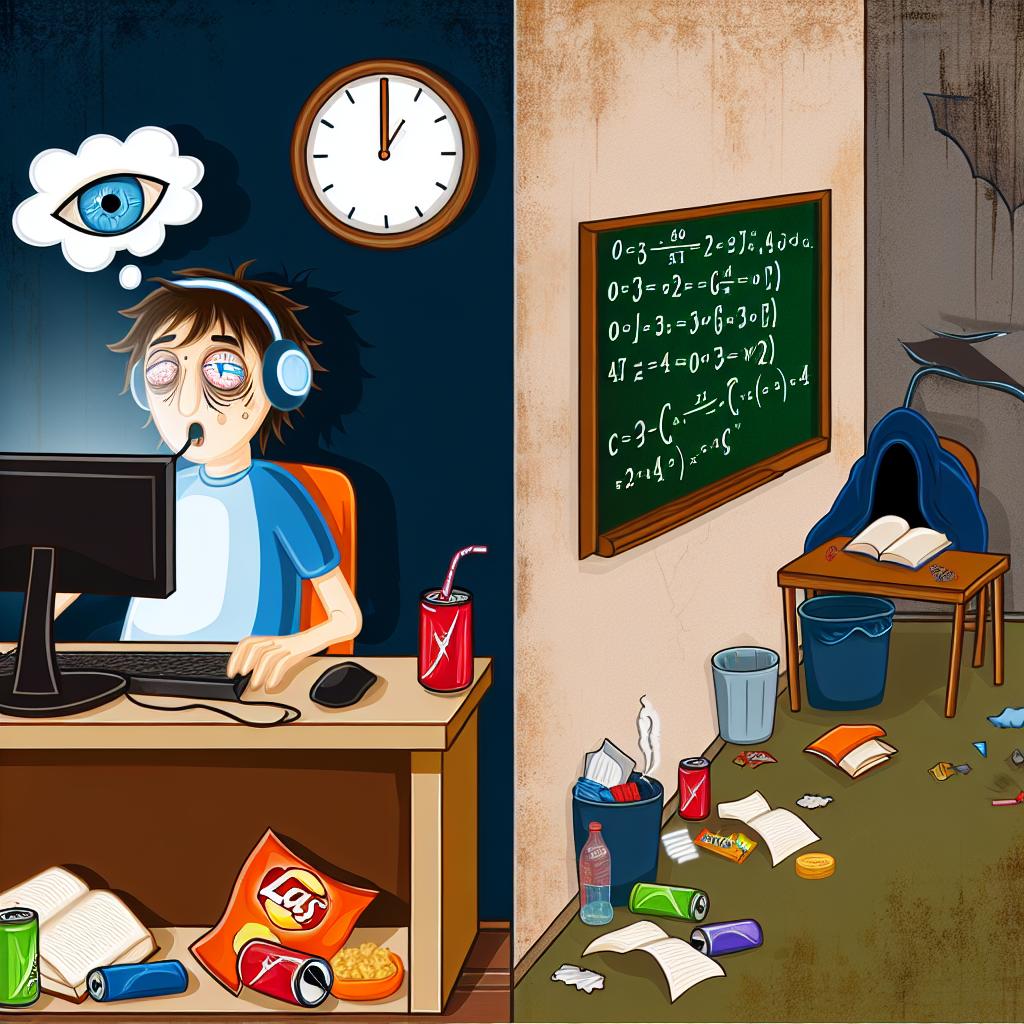The Impact of Problem Gaming on Academic Performance
Excessive gaming has emerged as a growing concern in contemporary society, especially among the student demographic. Video games, while offering notable benefits such as enhancing cognitive abilities and serving as a source of entertainment, pose significant challenges when they become all-consuming. This comprehensive analysis delves into how problem gaming influences academic performance among students.
Understanding Problem Gaming
Problem gaming, more commonly recognized as gaming addiction or disorder, manifests as an overwhelming and compulsive engagement with video games, which gravely interrupts daily life routines. According to research and official designations by authoritative bodies like the World Health Organization (WHO), problem gaming is characterized by an impaired ability to control gaming habits, prioritization of gaming over other critical activities, and persistence in gaming despite experiencing unfavorable outcomes.
Causes of Problem Gaming
Problem gaming stems from various factors that contribute to this compulsive behavior. Initially, the immersive environments created by modern video games captivate users, making it hard to disengage from their virtual interactions. These games often employ sophisticated narrative techniques and detailed storylines that engross players for extended periods. Additionally, the social dimensions of gaming, notably within online multiplayer platforms, serve as powerful magnets, enticing players to remain engaged. Such platforms offer environments where players can interact, compete, and collaborate with peers worldwide, fostering long playing durations. Moreover, psychological influences such as the pursuit of achievement within games, seeking an escape from reality, and the need for virtual companionship serve as potent motivators for prolonged gaming sessions.
Connection to Academic Performance
The correlation between problem gaming and diminished academic performance is intricate yet unmistakable. Several pathways illustrate how excessive gaming adversely affects students’ educational outcomes:
Time Management Issues: Students often struggle to balance their time when engulfed in intense gaming sessions, leading to insufficient allocation of time towards studies. This time mismanagement often results in incomplete assignments, missed homework deadlines, and inadequate exam preparation, subsequently affecting academic performance.
Decreased Attention Span: The engaging nature of high-intensity games contributes to a reduction in attention span, making it challenging for students to maintain concentration during lectures or when engaged with academic texts. This distraction hinders their ability to absorb and retain critical information necessary for effective learning.
Sleep Deprivation: The habit of indulging in late-night gaming leads to a reduction in sleep duration, which is crucial for cognitive recovery and function. Sleep deprivation results in fatigue, diminishes cognitive performance, and hampers the ability to learn and participate actively in school activities during daytime.
Increased Stress and Anxiety: The constant pressure to juggle gaming commitments and academic responsibilities heightens stress levels. Academic underperformance further compounds this stress, ensnaring students in a vicious cycle of anxiety and diminishing school outcomes.
Addressing the Issue
To mitigate the adverse effects of problem gaming on academic life, it is pivotal to adopt strategies that foster a balanced lifestyle:
– Establishing explicit gaming limits while committing to scheduled gaming breaks ensures that the time designated for gaming does not intrude upon academic duties. Such regulation of screen time encourages students to develop healthier gaming habits.
– Prioritizing academic assignments with a structured study timetable enhances time management skills, ensuring that educational responsibilities are sufficiently met. By allocating appropriate durations to academic endeavors, students can maintain a harmonious balance between studies and recreation.
– Engaging students in physical activities and promoting social interactions offline serves as an effective counterbalance, reducing their reliance on gaming for entertainment. Activities such as sports, group hobbies, and face-to-face social meetings help diversify students’ recreational activities away from screens.
For additional exploration about gaming addiction and for seeking professional guidance, visiting dedicated resources such as the Gaming Addiction Resource or the NHS Gaming Disorder Information can prove beneficial. These platforms offer comprehensive insights and practical advice for students, parents, and educators striving to understand and mitigate the impact of problem gaming on academic performance.
In conclusion, while gaming can serve as a beneficial recreational activity, it is crucial for students to develop a balanced approach that prioritizes their academic obligations. Continuous education about healthy gaming practices and accessible support resources can assist in achieving this equilibrium, potentially transforming problem gaming into a productive recreational pursuit.

